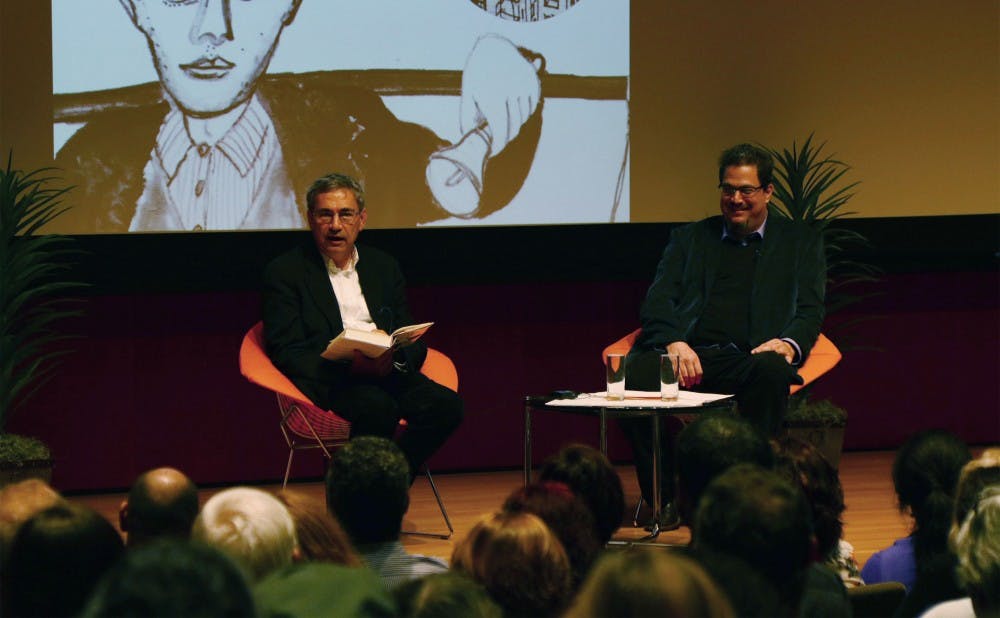Turkish novelist and Nobel laureate Orhan Pamuk discussed his most recent book and the changing political climate in Turkey Thursday evening.
Pamuk, who won the 2006 Nobel Prize in Literature, has written novels, essays and screenplays. The well-attended talk at the Nasher Museum of Art discussed his ninth novel, "A Strangeness in My Mind." Erdağ Göknar, associate professor of Asian and Middle Eastern Studies and director of the Duke Middle East Studies Center—which was one of several sponsors of the event—moderated the discussion.
Göknar previously translated one of Pamuk's most famous and influential novels—titled "My Name is Red"—into English.
In "A Strangeness in My Mind," Pamuk presents a literary depiction of Istanbul’s rise to global prominence between 1969 and 2012, told from the perspective of a street vendor who has lost his job.
“This is the story of one, private individual,” said Pamuk, who began crafting his tale of the peddling protagonist Melvut as a short story—one that would ultimately evolve into a 600-page novel.
The novel centers around Melvut’s struggle to make a living selling a traditional drink known as “boza,” which many Turks have left behind for a more modern beverage. Pamuk uses this metaphor to represent old-fashioned Turkish “ethics” being abandoned for a more volatile era plagued by domestic insurgencies and political destabilization, a recurring theme in the novel.
The Turkish author said his "nostalgic” relationship with his 50-year-home of Istanbul is like Melvut’s desire to preserve the boza tradition before it is forgotten forever.
“What is a city to a person who has lived there all his life?” Pamuk said, identifying one of the central questions which the book ponders.
For his novel, Pamuk adopted the first-person perspective of Melvut and said he spent time with rural street vendors to perfect the persona. He also noted that conversations he had with many of his graduate students at Columbia University—where he serves as the Robert Yik-Fong Tam professor of the humanities—were important components to his writing.
“I did oral history in my own way,” he said. “You find details you don’t find in books.”
When asked by an audience member whether he ever envisions his novels as films or plays while he writes, Pamuk said that he does use this process as he creates his works.
“I would like to consider myself a visual novelist,” he said.
He added that it is often this visual appeal to the imagination that helps audiences identify with a literary work.
“A novel resonates in the imagination of a reader due to the shared common experience,” he explained.
Professor of English Victor Strandberg said he thought Pamuk was direct and informative.
“He told us what we were anxious to know, so I thought it was a very successful interview,” said Strandberg.
The conversation was one of a series of public events hosted by Duke featuring Pamuk this week. A documentary film about Pamuk’s novel "The Museum of Innocence" was screened preceding Thursday's talk and a visual presentation about "The Museum of Innocence" will be held Friday morning at 11 a.m. in the Franklin Humanities Institute Garage in Smith Warehouse.
Get The Chronicle straight to your inbox
Signup for our weekly newsletter. Cancel at any time.

